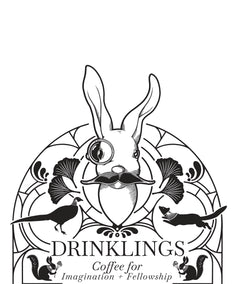How Beer Can Change the World (For the Better!)
In Stephen Manfield's wonderful book The Search for God and Guinness: A Biography of the Beer that Changed the World, Manfield describes the work of the Guinness family as a company built not just on a conviction of quality beer but a company built on a conviction of social responsibility, Christian faith in action, and cultural change. If you're like me, you likely didn't know much about Guinness beyond the fact that it was a dark, stoutly beer that is almost synonymous with modern Ireland itself. I knew of Os Guinness, a Christian theologian and social critic popular for books like The Call and The Global Public Square. But beyond that, very little. After a recent tour through the St. James Gate Brewery, however, and learning about the deep social concerns of the brewery and the ways in which they helped moved Dublin from the slums of European society to a respectable and stable global economy, I picked up Manfield's book off my shelf (I had bought it years ago, but failed to ever read it).
What has impressed me about the Guinness family was a deep internal belief that they had a responsibility to society and reform. As one who has a background both in ministry and in business, the practice of social entrepreneurship has always been--for my money--the most intriguing way of changing the world. The Guinness brewery almost single-handedly saved Dublin through various practices and company protocols.
To quote Manfield, "A Guinness worker during the 1920s enjoyed full medical and dental care, massage services, reading rooms, subsidized meals, a company-funded pension, subsidies for funeral expenses, educational benefits, sports facilities, free concerts, lectures and entertainment, and a guaranteed two pints of Guinness beer a day" [which, often times served as a 'meal' for many].
Wow. This was in the 1920s, almost 100 years ago.
This was in addition to paying things like funeral expenses, job security, higher wages, paid family vacations, a house doctor, and the employing a proto-social worker within their company (John Lumsden) who visited thousands of Dublin homes and produced material to help reform society and educate individuals.
The goal of Guinness here was not to merely provide "benefits" for its workers but to encourage 'change', to provide what they could to make the lives of those that worked for them a bit better, and to follow an ethic of responsibility, which acknowledges that the demarcation between 'personal' and 'professional life' is simply a myth. Guinness was as equally concerned about brewing good society and people as they were about brewing good beer.
And might one ask what business model today is synonymous with this? Perhaps, if one works for Google or some other major company that requires years of ladder climbing, high-end skills, and political playing, generosity is provided. That is, of course, too often the case: the higher the paycheck, the more freedom and luxury you have. The lesser the paycheck, the less is "owed" to you. Frankly, many of the janitors I know work far harder than those in CEO positions.
I also know, of course, that there are other companies of smaller size that operate in incredibly generous ways: but one also realizes that in a world in which money is power and power is money, there is no such organization that carries both a front of national pride, concern, and generosity that could be compared to Guinness. Why is that?
But Guinness, while it became one of the largest brewerys in the world, situated itself within the slums and saw it as their mission not to necessarily provide these services for individuals who "deserved them" but for those who needed them. The goal was, in the worlds of Lumsden, prevention. If they could utilize their business through decades to prevent--not even simply cure--social poverty and destitution, then they would have created a business outreach model that was as stout as the beer they chose to make.
The model, in case you're wondering, has had profound effects on Dublin life such that the city is universally proud of its attachment to the brew. When we were over there, Guinness was simply everywhere! And that's not because there aren't other Dublin brewerys: there are. And, of course, Irish Whiskey is quite popular too. It's because Guinness became a symbol of the community, a symbol of change and what is possible, a symbol of love and care. My guess is that most long standing families in Dublin could tell you stories about how their very livelihood (or their very lives) are owed to the generosity of the Guinness Brewery and what they did.





